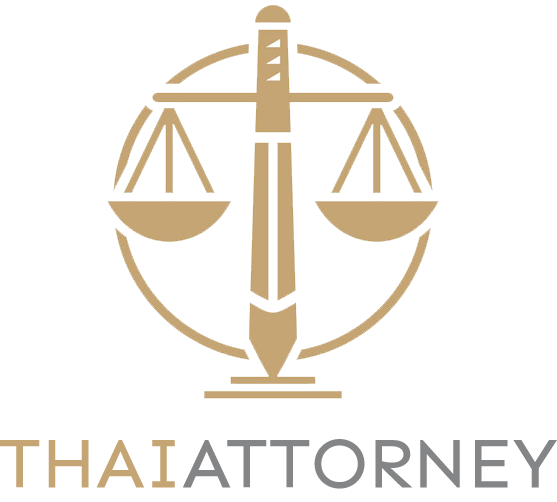Child custody is one of the most important and sensitive aspects of family law in Thailand. It directly affects a child’s upbringing, emotional well-being, education, and overall development. In cases of divorce, separation, or parental dispute, custody arrangements determine who has the legal authority and responsibility to care for the child. Understanding the importance of child custody in Thailand is essential for parents to protect their child’s best interests while ensuring compliance with Thai law.
Legal Framework Governing Child Custody in Thailand
Child custody in Thailand is governed primarily by the Civil and Commercial Code (CCC). The law emphasizes that custody decisions must prioritize the best interests of the child above all other considerations. Custody rights include both parental authority and the duty to care for and support the child.
Under Thai law, parental power generally belongs to both parents if they are legally married. However, custody arrangements may change following divorce, separation, or court intervention. In cases involving unmarried parents, custody rights may differ significantly, particularly for fathers.
Meaning and Scope of Child Custody
Child custody in Thailand encompasses more than physical care. It includes legal authority to make important decisions regarding the child’s education, healthcare, residence, religion, and general welfare.
Custody may be granted to one parent or shared between both parents, depending on the circumstances. Even when one parent is granted sole custody, the other parent may retain visitation rights and child support obligations.
Understanding the scope of custody is crucial because it defines not only where the child lives but also who has the legal power to shape the child’s future.
Importance of Child Custody in Divorce Proceedings
In divorce cases, child custody is often the most contested issue. Custody arrangements must be clearly determined to avoid future disputes and ensure stability for the child.
If parents agree on custody terms, these can be incorporated into a divorce agreement or registered divorce. However, if parents cannot reach an agreement, the court will decide custody based on the child’s best interests.
Clear custody arrangements help minimize conflict, provide emotional security for the child, and establish consistent caregiving responsibilities.
Best Interests of the Child Principle
The cornerstone of child custody decisions in Thailand is the “best interests of the child” principle. Courts evaluate various factors, including:
-
The child’s age and emotional needs
-
Each parent’s ability to provide care and stability
-
The child’s relationship with each parent
-
Educational and social environment
-
History of abuse, neglect, or misconduct
This principle ensures that custody decisions are child-centered rather than focused on parental rights alone.
Child Custody and Parental Responsibility
Custody is closely linked to parental responsibility. A parent with custody has both rights and duties, including providing care, education, and emotional support.
The importance of custody lies in ensuring accountability. A clear custody arrangement identifies who is responsible for daily decision-making and long-term planning, reducing uncertainty and conflict.
Child Custody for Unmarried Parents
In Thailand, custody rules differ significantly for unmarried parents. If parents are not legally married, the mother generally has sole custody by law. The father must legitimize the child through legal procedures to obtain custody rights.
This legal distinction highlights the importance of custody arrangements and legal recognition of parental rights, particularly for fathers seeking involvement in their child’s life.
Cross-Border and International Considerations
In cases involving foreign parents or international relocation, child custody becomes even more critical. Custody determines who has the legal authority to decide where the child lives and whether the child may travel or reside abroad.
Without clear custody rights, international travel with a child can be restricted, and disputes may arise between jurisdictions. Proper custody arrangements help prevent child abduction allegations and facilitate lawful international movement.
Child Custody and Child Support
Custody and child support are closely connected but legally distinct. Even if one parent is granted sole custody, the other parent remains obligated to provide financial support.
Clear custody arrangements help ensure that child support obligations are properly determined and enforced. This financial stability is essential for the child’s welfare and long-term development.
Emotional and Psychological Importance of Custody
Beyond legal considerations, child custody has profound emotional and psychological implications. Stability, consistency, and a nurturing environment are critical for a child’s mental health.
Unclear or contentious custody arrangements can expose children to ongoing conflict, stress, and emotional harm. Establishing clear custody arrangements helps create a sense of security and routine, which is especially important during family transitions.
Role of the Court in Custody Disputes
When parents cannot agree on custody, the Thai courts play a decisive role. The court may appoint social workers or psychologists to assess the child’s situation and provide recommendations.
Court involvement underscores the importance of custody as a legal safeguard. Judicial oversight ensures that decisions are impartial and focused on the child’s well-being.
Modification and Enforcement of Custody Orders
Child custody arrangements may be modified if circumstances change, such as relocation, changes in parental ability, or the child’s evolving needs.
Proper legal custody orders provide a clear framework for enforcement and modification. This flexibility ensures that custody arrangements remain aligned with the child’s best interests over time.
Importance of Legal Guidance
Given the complexity and sensitivity of child custody matters, legal guidance is essential. Family law professionals help parents understand their rights and responsibilities, negotiate agreements, and represent their interests in court.
Professional assistance ensures that custody arrangements are legally valid, enforceable, and focused on the child’s welfare.
Conclusion
The importance of child custody in Thailand lies in its central role in protecting a child’s best interests, stability, and future development. Custody determines not only where a child lives but also who holds the legal authority to make critical life decisions.
By establishing clear, lawful, and child-centered custody arrangements, parents can provide security, reduce conflict, and support their child’s emotional and social well-being. In Thailand’s family law system, child custody is not merely a legal issue—it is a fundamental safeguard for the child’s present and future.

